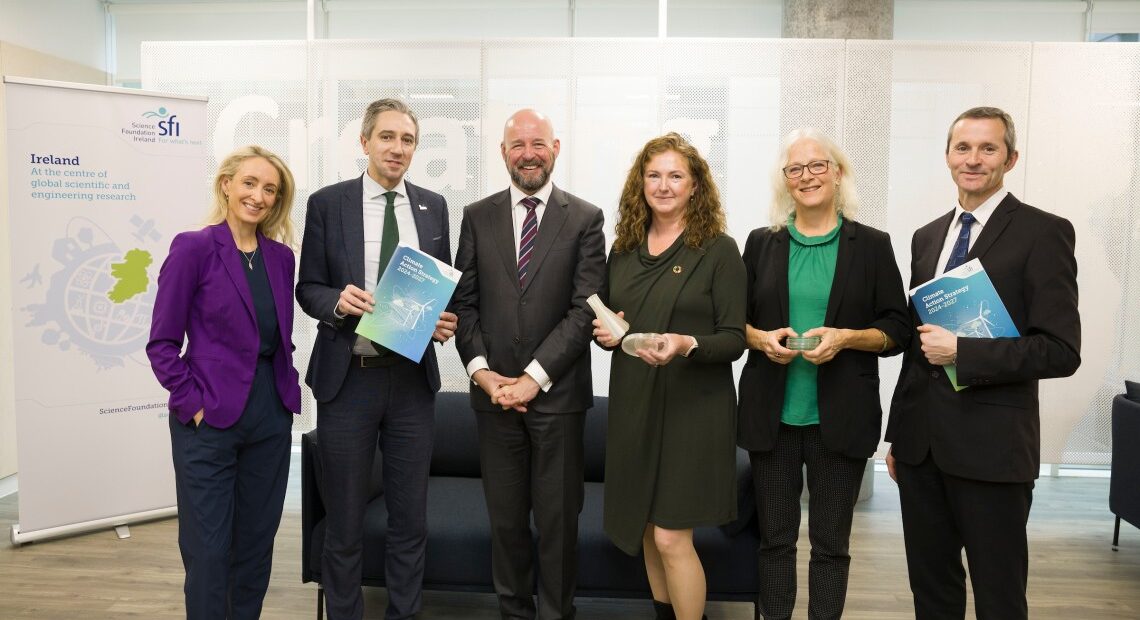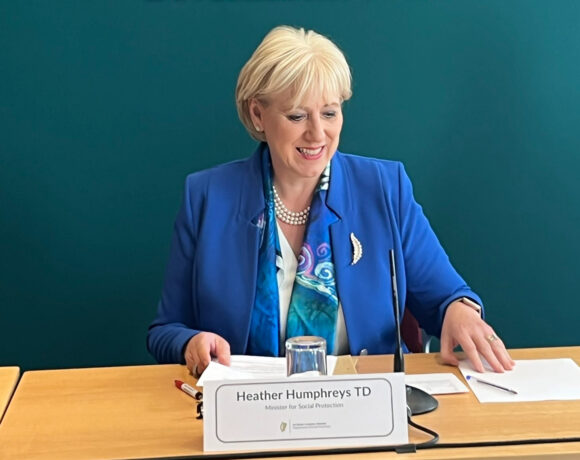Minister for Further and Higher Education, Research, Innovation and Science, Simon Harris TD, has launched a Sustainable Laboratories Certification Pilot Programme, led by SFI.
The programme, in partnership with international non-profit organisation, My Green Lab, aims to bring best-in-class, sustainable research practices into Irish labs. This is a global first, as Ireland becomes the first country in which a national research funding agency has spearheaded a certification process in lab sustainability.
Announcing the SFI/My Green Lab pilot programme, Minister Harris said, “this SFI new pilot certification programme in partnership with My Green Lab is the first of its kind, making Ireland a pioneer in sustainable research. We can all play our part in reducing our carbon footprint and this programme demonstrates how fundamental changes made in the lab can have a large impact. This initiative is an ambitious and progressive move to place sustainability front and centre within the science community and builds upon great work already underway in many of our higher education institutions. I look forward to seeing the results of this programme over the coming months.”
It is widely recognised that research, and the talent it develops, are a crucial part of our national response to the climate change challenge. New technologies, ideas and innovations, coupled with the skilled individuals to deploy them, will be central to our economic and societal well-being.
However, laboratories are resource-intensive spaces, using ten times more energy than office spaces, and four times more water. Globally, academic research laboratories lead to the production of an estimated 5.5 million tonnes of plastic waste each year, equating to around 2% of the world’s plastic production.
My Green Lab works closely with laboratories all over the world to support them in achieving their sustainability goals. The My Green Lab Certification process is recognised by the United Nations’ Race to Zero campaign as a key measure of progress towards a zero-carbon future.
With applications now open to join the pilot, the programme formally commences in November 2023 and will support SFI Principal Investigators and Funded Investigators and their research labs towards My Green Lab Certification.
The pilot My Green Lab Certification programme is a key component of SFI’s new climate action strategy, also launched today, which is committed to tackling the challenges of climate change and creating a more sustainable future for all. Pivotal to this strategy is ensuring SFI’s funded programmes are undertaken in a manner that supports sustainable practices.
Dr Ciarán Seoighe, Deputy Director General, SFI, commented, “SFI is proud to launch this pilot programme. Our goal is to become the first country to adopt a holistic, proven and widely supported approach to sustainable research practices at a national level. Our new climate action strategy is committed to climate action and sustainability within our community across three pillars – funding excellent research that will shape a sustainable future; moving knowledge and talent through our society and economy; and conducting research and related activities sustainably. This pilot programme is designed to empower researchers across SFI-funded projects to make well-informed choices and to take actions to reduce the environmental impact of their work.”
James Connelly, CEO, My Green Lab, said, “we are delighted to partner with SFI to support widespread rollout of My Green Lab Certification across eligible, SFI-funded labs. At My Green Lab, our goal is to show laboratories how making simple changes in the lab have a large impact in reducing our carbon footprint. We look forward to working with SFI on our mission to build a global culture of sustainability in science and support SFI to lead the world on the launch of a world’s first national green lab program – and inspire the rest of the world to follow in their footsteps.”
Source: Science Foundation Ireland













